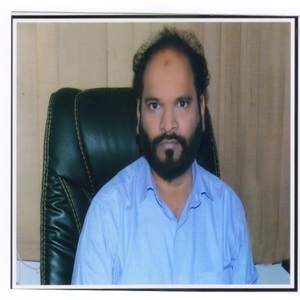Abstract Detail

Mohmmad Owais
IBU. Aligarh Muslim University, India
Abstract
The scourge of tuberculosis and other intracellular infection is continuing to toll millions of human lives annually. Unfortunately, in the present scenario we are not having effective vaccines against most of the intracellular infections. For example, the only vaccine against tuberculosis is BCG which provides uncertain protection against infection in various regions and races of the world. Developing new vaccine based on Mycobacterium strains is a challenging task given the fact that the majority of population living near tropics carries varying degree of tolerance against either BCG or Non-Tuberculous Mycobacteria (NTM). Moreover, the fact that ≈90% of Mycobacterium tuberculosis (Mtb) infected population restrain the bacilli on its own; strengthen the case for harnessing the power of host’s own immune system to advance the protective efficacy of mycobacterial vaccines. In general, Mtb modulates IL-10/STAT3 signaling to skew host mononuclear phagocytes towards alternatively activated, anti-inflammatory state. The asgenerated anti-inflammatory ambience helps Mtb to thrive against hostile immune advances. We thus hypothesized that modulating anti-inflammatory effects by employing TLR agonist, may improve the prophylactic ability of vaccines against tuberculosis. Here, we investigated the immunotherapeutic ability of TLR agonist studded subunit vaccines to improve anti-TB immunity. The TLR agonist therapy potentiated vaccine induced anti-TB immunity by downmodulating anti-inflammatory responses driven via engagement of IL-10/10R and subsequent STAT3 activation. The as-tailored subunit nanovaccines conferred augmented resistance to aerosol Mtb challenge in BALB/c mice. The protection was accompanied with predominant early proliferation of pro-inflammatory monocytes/macrophages/DCs, enhanced expansion of CD4+ and CD8+ central memory T cells and dynamic equilibrium between amplification of Th17 and Treg cells.Biography
Owais Mohammad is an Indian immunologist, nano-technologist and a professor at the interdisciplinary biotechnology unit of the Aligarh Muslim University. Known for his studies on nanotechnology-based vaccine and drug delivery, Owais is the author of two books, Trypanothione reductase: a potential anti-leishmanial drug target[ and Antimicrobial properties of clove oil: clove oils as antimicrobial agent. He has also co-edited two books, Modern Phytomedicine: Turning Medicinal Plants into Drugs[ and Combating Fungal Infections: Problems and Remedy,] and has contributed chapters. His studies have also been documented by way of a number of articles and Research Gate, an online repository of scientific articles has listed 60 of them.[9] He is a recipient of the Rashtriya Gaurav Award of the India International Friendship Society. The Department of Biotechnology of the Government of India awarded him the National Bioscience Award for Career Development, one of the highest Indian science awards, for his contributions to biosciences in 2007. His work has been displayed on cover pages of FEMS Immunol. Med Microbiology for all the issues of Year 2006 and Molecular Medicine in May–June issue of Year 2007.
